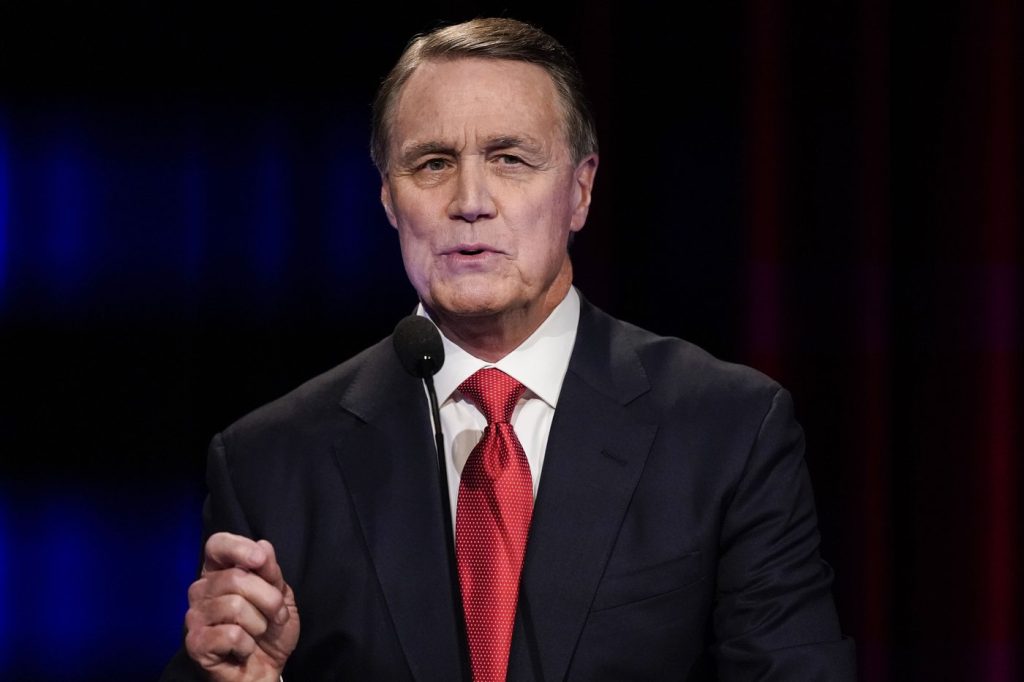The U.S. Senate confirmed former Senator David Perdue as the ambassador to China on Tuesday, with a vote of 67-29 that included support from some Democratic senators. Perdue, a Republican who previously represented Georgia in the Senate, highlighted the U.S.-China relationship as the "most consequential diplomatic challenge of the 21st century" during his confirmation hearing. He emphasized the need for a "nuanced, nonpartisan, and strategic" approach to dealing with China.
Perdue's appointment comes at a particularly tense time, with both nations engaged in a tariff dispute that has significant implications for their diplomatic relations. President Donald Trump, who nominated Perdue in December, recently imposed hefty tariffs of 145% on Chinese goods. In retaliation, China responded with 125% tariffs on American products, leading to a stalemate with no immediate resolution in sight. The Trump administration appears to be wagering that these high tariffs will pressure the Chinese economy, prompting Beijing to negotiate, whereas Chinese officials have stated their commitment to continue resisting U.S. pressure.
The situation is further complicated by China's strategic vision of becoming less reliant on the United States. Zhao Chenxin, vice chairman of China's National Development and Reform Commission, remarked that regardless of global changes, China will focus on its own developmental goals and policies. This indicates a long-term shift in China's economic strategy, aiming to bolster its domestic market and reduce dependence on U.S. trade.
Perdue will take on his new role amid growing concerns that China is actively challenging U.S. global dominance. Notably, China's military posture has become more assertive in both the Taiwan Strait and the South China Sea. The Chinese government is also making significant advancements in technology sectors, becoming a near-peer competitor in areas such as artificial intelligence and humanoid robotics. The Trump administration intends to adopt a tougher stance on technological competition with China while trying to manage the risks of military conflicts, particularly related to Taiwan, which remains a point of contention between the two nations.
Experts have noted that Perdue's confirmation is timely, as "credible points of contact" are crucial for stabilizing the ongoing relationship between the United States and China amidst the tariff war. Jim Risch, the Senate Foreign Relations Committee Chairman, emphasized the significance of Perdue's nomination, calling it one of the most important appointments to come before the Senate.
In addition to his political experience, David Perdue has a background in business, having held leadership positions at major corporations such as Sara Lee, Reebok, and Dollar General. However, his political career has seen ups and downs, culminating in a loss to Democrat Jon Ossoff in the 2020 Senate race and an unsuccessful bid for governor against Republican Brian Kemp in 2022. Notably, during his gubernatorial campaign, Perdue promoted former President Trump's unfounded claims of electoral fraud during the 2020 presidential election.
As Perdue prepares to assume his duties, he faces a complex geopolitical landscape with far-reaching implications for U.S.-China relations, which will be closely watched by both nations and the international community. His ability to navigate these challenges will be crucial as tensions continue to escalate in various domains, from trade to technology.











